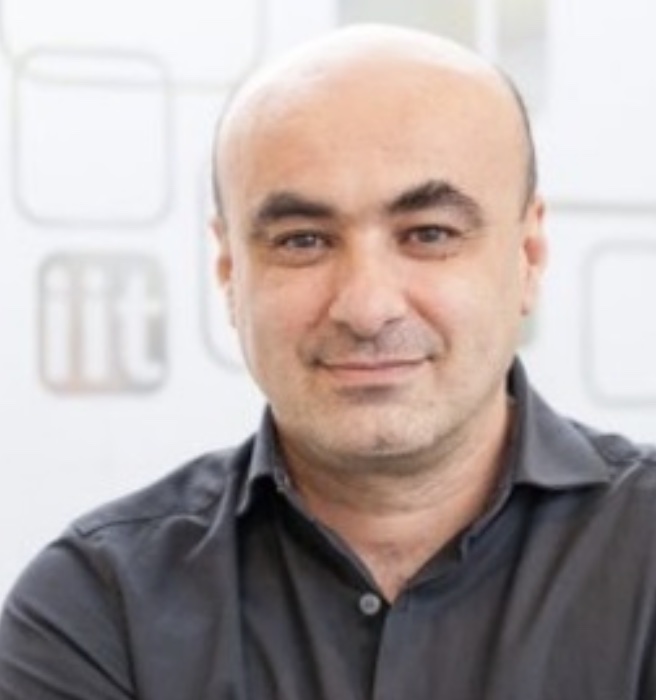
Faculty of Engineering and Applied Science,
Ontario Tech University, Canada

Sheldon S. Williamson (S'01-M'06-SM'13-F'20) received his Bachelors of Engineering (B.E.) degree in Electrical Engineering with high distinction from University of Mumbai, Mumbai, India, in 1999. He received the Masters of Science (M.S.) degree in 2002, and the Doctor of Philosophy (Ph.D.) degree (with Honors) in 2006, both in Electrical Engineering, from the Illinois Institute of Technology, Chicago, IL, specializing in automotive power electronics and motor drives, at the Grainger Power Electronics and Motor Drives Laboratory. Currently, Dr. Williamson is a Professor at the Smart Transportation Electrification and Energy Research (STEER) group, within the Department of Electrical, Computer, and Software Engineering, at Ontario Tech University, in Oshawa, Ontario, Canada. He also holds the prestigious NSERC Canada Research Chair position in Electric Energy Storage Systems for Transportation Electrification. His main research interests include advanced power electronics and motor drives for transportation electrification, electric energy storage systems, and electric propulsion. Prof. Williamson is a Fellow of the IEEE.
Smart Electrification Strategies for Future Autonomous Modes of Micromobility
Driverless (autonomous) electrified means of micro-mobility have been touted to bring progressive
lifestyle changes to civilization. Examples include: E-bikes/scooters, autonomous robots, e-drones, and unmanned e-aircrafts/UAVs, to name a few. It is clear that autonomous e-micromobility will become an essential support for humans, especially post Covid, by satisfying essential services and needs, without the necessity for human contact, thus respecting social distancing guidelines. One of the key issues, however, with e-micromobility is the battery range and calendar life. This requires their batteries to be recharged ever so often. In addition, various modes of e-micromobility also have major cargo restrictions, whereby carrying bulky battery packs is impractical.
This talk will present innovative solutions to these issues in the form of completely autonomous,
weatherproof, wireless rapid recharging. Wireless charging can provide rapid recharge within ~2-3
minutes, making e-micromobility entirely autonomous, and literally allowing their on-board batteries to juice-up "on-the-move " or "on-the-fly."
This talk will present the design, testing, and implementation of practically developed inductive power transfer (IPT), capacitive power transfer (CPT), and hybrid IPT/CPT chargers, with power ranging up to 11.0 kW. The results derived from these designs contribute specifically to the enhancement of wireless charging research for future e-micromobility, as well as for e-transportation, in general. Alternatively, the lessons learned will, at the very least, facilitate the generation of new ideas.
This presentation will also highlight the current status and future opportunities within Ontario Tech University's research program on transportation electrification and electric energy storage systems. The above-mentioned research initiatives will be described in the presentation and industry-specific projects within the STEER group will be highlighted. The NSERC Canada Research Chair (CRC) program includes several novel initiatives in the areas of transportation electrification and is built upon the expertise and knowledge of the STEER group in a number of promising interdisciplinary areas related to power electronics and motor drives.

Chung Choo Chung received his Ph.D. degree in electrical and computer engineering from the University of Southern California, Los Angeles, CA, USA, in 1993. From 1994 to 1997, he was with the Samsung Advanced Institute of Technology, Korea. In 1997, he joined the Faculty of Hanyang University. Dr. Chung served/serves an associate editor of numerous international journals and conferences such as Asian Journal of Control (AJC), International Journal of Control, Automation and Systems (IJCAS), IEEE Trans. on Control System Technologies (IEEE TCST), IEEE Trans. on Intelligent Transportation Systems (IEEE ITS), IFAC Journal, Mechatronics, IEEE Conference on Decision and Control, American Control Conference (ACC), IFAC World Conference, and so on. He also served as Editor/Guest Editor-in-Chief for IJCAS, IEEE TCST, and IEEE Intelligent Transportation Systems Magazine. He was a program co-chair of ICCAS-SICE 2009, Fukuoka, Japan, an organizing chair for the International Conference on Control, Automation and Systems (ICCAS) 2011, KINTEX, Korea. He was the general chair of ICCAS 2019, Jeju, Korea. He was also a general chair of IEEE Conference on Decision and Control (IEEE CDC) 2020 held in Jeju, Korea. He was the 2019 President of the Institute of Control, Robotics and Systems (ICROS), Korea. He is a Fellow of ICROS and a member of the National Academy of Engineering of Korea (NAEK). His current research interests include autonomous vehicle control, precision motion control, motor control, power systems based on nonlinear control, multi-rate control, model predictive control, disturbance observer and machine learning, etc.
Observer-Based Robust Control: Its Application to Permanent Magnet Synchronous Motors
This talk introduces how observer-based robust control is applied to mechatronic systems using permanent magnet synchronous motors. A mechatronics system typically consists of a mechanical moving part, a driving motor, and a power converter to drive the motor. We present that the mechatronics system can be represented in the form of three cascaded systems, and we investigate how the stability of the three cascaded systems is ensured via the Lyapunov stability theorem. In this presentation, we will introduce three nonlinear observers designed in our research group. One nonlinear observer is for the power converter, the other is for disturbance observer for a mechanical system, and the last is for velocity observer to use sensorless speed control. We will show how the three observers are different from those in the literature and discuss the limitations and applicability of a motion control system.

Nikos Tsagarakis is Tenured Senior Scientist and Head of the Humanoid & Human Centered Mechatronics (HHCM) Research Line, a leading research laboratory at IIT with strong expertise in robot design, modeling and control, and in the development of new mechatronics components (actuation and sensing). HHCM is the home laboratory where the compliant humanoids COMAN and WALK-MAN and the CENTAURO hybrid wheeled-legged quadrupedal manipulation platform were developed. Nikos Tsagarakis was the coordinator of EU project WALKMAN and has served as principal investigator for several EU projects in the past including VIACTORS, SAPHARI, AMARSI, WEARHAP and most recently for CogiMON, CENTAURO and EUROBENCH.
He is an author or co-author of over 400 papers in research journals and at international conferences and holds 18 patents. He has received the Best Jubilee Video Award at IROS (2012), the 2009 PE Publishing Award from the Journal of Systems and Control Engineering and prizes for Best Paper at ICAR (2003) and the Best Student Paper Award at Robio (2013), Best Student Paper Award (ICINCO 2014), Best Interactive Paper at Humanoids (2017) and Best Paper at AIM (2021). He was also a finalist for Best Entertainment Robots and Systems - 20th Anniversary Award at IROS (2007) and finalist for the Best Manipulation paper at ICRA (2012), the Best Conference Paper at Humanoids (2012), Best Interactive Paper finalist at Humanoids (2016), Best Conference Paper finalist (IEEE Robio 2019) and Best Paper finalist at Humanoids (2020). He has been in the Program Committee of over 60 international conferences including IEEE ICRA, IROS, RSS, HUMANOIDS BIOROB and ICAR.
Nikos Tsagarakis was Technical Editor of IEEE/ASME Transactions on Mechatronics (2012-2015) and from 2014 to 2019 he served on the Editorial Board of the IEEE Robotics and Automation Letters. He is currently a Senior Editor of IEEE/ASME Transactions on Mechatronics.
Actuation Technologies for Enhanced Physical Performance and Resilient Robots
The mechatronic development of humanoid and legged robot systems has considerably progressed during the past three decades with various designs based on different actuation technologies, from motorized based systems to hydraulic, soft and impedance controlled actuation technologies. Despite the advancements in the design of motorized humanoids/bipeds significant barriers still remain, preventing the robot hardware (physical structure and actuation) from equalling the performance of human in loco-manipulation and full body motion in terms of physical strength, robustness, power performance and efficiency.
In this talk I will provide an overview of the actuation principles and technologies we developed in Humanoids and Human Centred Mechatronics Lab at IIT over the previous year's leveraging on compliant, torque and impedance control actuation principles. Details on the actuation design approaches to achieve the necessary performance in terms of physical resilience, high power and fast motion capabilities will be presented.
The talk will introduce details on the mechatronics and control aspects of these robotic actuation technologies as well as on their integration and application on the development of complete humanoid and legged robotic platforms such as WALK-MAN, COMAN+ and CENTAURO. Recent works on energy efficiency considerations will also be discussed showing the potential of new actuation arrangements in reducing the energy consumption of articulated robotic systems.